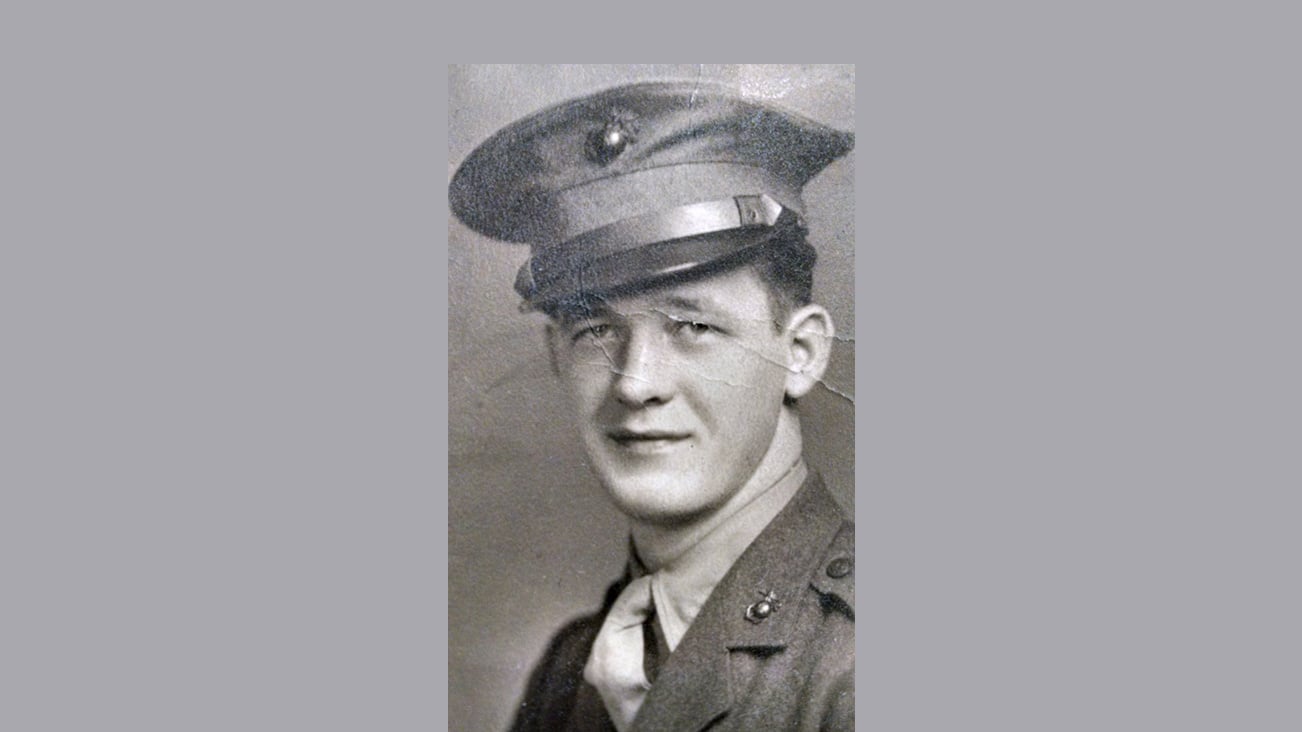
Richard T. Rafter, USMC
My favorite uncle was Richard Thomas Rafter of South Philadelphia, my mother’s older brother. Richard was a Marine in World War II, a combat veteran of the Pacific War, which made him a celebrity to me. He became a Pennsylvania State Trooper after the war. He was modest and kind, quiet and with a dry sense of humor. Sadly, he died in 1977, just as I was really getting to know him.
In February 1945, Richard was a 19-year-old Marine on a transport ship headed for a volcanic speck of land in the Pacific Ocean called Iwo Jima. In his letters home, he painted the war mostly in the pastel colors that veterans have always used so the folks back home won’t worry too much.
But those pastels grew darker in some of his letters. They were also darker in some of the memories he shared with his family long after the war had ended.
In a letter dated Feb. 3, 1945, he tells his mother and father: “Keep going to church and praying and don’t worry too much, I have fullest confidence in myself and not worried about action, only about getting home to a real bed with springs and sheets.”
It was only years later, during a life that should have been domesticated bliss, that he talked about the reality of Iwo Jima: the beach covered in dead and dying Marines, his best friend killed by machine gun fire, the fearsome flame-throwers in action, the Japanese officer he killed in close combat. That Japanese officer, he recalled, had been wearing a brilliant new uniform and had a gleaming sword raised to strike – but the man had hesitated just a moment, seemingly reluctant to kill, thus giving Richard time to raise his rifle and shoot the man dead.
“I think about that guy sometimes,” Richard used to say quietly. Of course, in circumstances like that, he didn’t have much choice. But it stayed with him.
After Japan surrendered, he served occupation duty in Nagasaki, before the dangers of radiation were understood. He wrote home about his Japanese girlfriend, and how badly he felt for the Japanese people, who had been cast into poverty by the war and their own callous leaders.
Although he survived the Battle of Iwo Jima, and had survivor’s guilt from that, Richard too was a victim of war. Thirty years after he came home, he died of bone cancer, a disease unknown in my family. We’ve always suspected, as do the Marines, that it came from Nagasaki. Like so many veterans, Richard was gone too soon.
That kind of courage and sacrifice are too precious to take for granted. On Veterans Day, let us remember and honor those like Richard who offer themselves so the rest of us may live. After all, who but the best of us can step forward like that?
Written by Andrew Miller, an assistant professor of history at Neumann University.
 CHALLENGE
CHALLENGE





